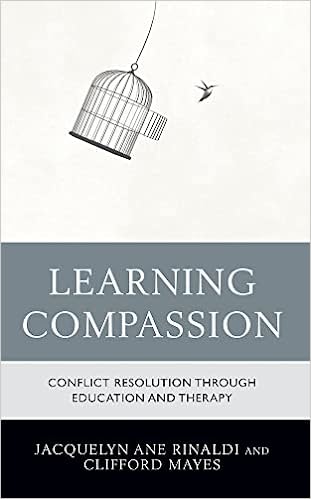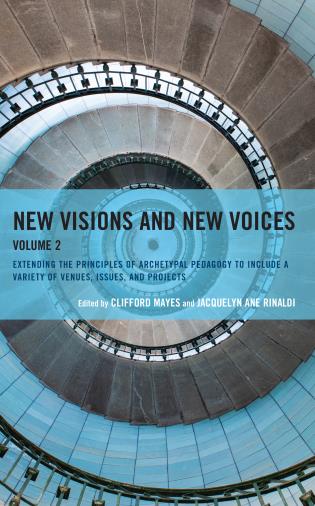Learning Compassion: Conflict Resolution Through Education and Therapy
Jacquelyn Rinaldi & Clifford Mayes
This book discusses the relationship between compassion and peace with a special emphasis on the role that therapy and education can play in promoting a state of affairs in which, as humanity becomes more compassionate, peace becomes more possible.
Learning Compassion is unique in that it does not demonize principled militaristic
views of human nature and the inevitability of war. We do not summarily disregard war as just a vast historical “mistake,” nor do we argue in an excessive optimism that humanity could abolish war if only it took the proper view of things and resolved to repent and reform on the spot. As relatively conservative academics, we are suspicious of simplistic liberal panaceas for the programmatic betterment of humankind.
Rather, although we generally raise our voice against warfare, we allow the possibility of a just war that must be fought. Only, we argue that such a war must be a very rare occurrence; a matter of constant critical reassessment while in progress; carried on in the most humane and circumspect fashion possible; and resolved as quickly as possible by diplomatic means.
In general, however, we do argue for an increasing move away from warfare in our ongoing collective evolution. We do this not because tension and disagreement in human affairs is eradicable but precisely because it is not, which leads to the project that engages us in this book—the humane containment of that tension in dialectical processes that are creative and productive.
We contend this can occur with increasing frequency through: 1) depth-psychological work on oneself (especially the recognition and sane integration of one’s shadow so as not to project it onto a putative “enemy”); 2) the integration of complex, even contradictory, aspects of oneself in the service of a non-judgmental view of one’s and others’ complexity—tolerance, in short; 3) the use of meditative modalities to accomplish all of this in the quasi-religious frameworks of Buddhism primarily and also certain structures and principles of the Judeo-Christian tradition, and 4) the shaping of the child through educational processes that are holistic and psycho-spiritually sound. The two sites where this can best be accomplished, we contend, is in the psychoeducational venues of the consulting room and classroom.
Buy Now at Rowman & Littlefield
Email now for more information info@jacquelynrinaldi.com
New Vision, New Voices: Extending the Principles of Archetypal Pedagogy to Include a Variety of Venues, Issues, and Projects Vol. 2
Editors: Clifford Mayes & Jacquelyn Rinaldi
In this book, the contributors expand on their use of Mayes archetypal pedagogy in volume 1 to apply its principles to a wide variety of venues, purposes, and projects. Each essay explores from its own disciplinary angle the difference between what Mayes has called “educational processes” (which are those practices that take place in the dedicated space of the classroom, through the medium of the curriculum, and under the stewardship of the teacher) and “educative acts” (which are those deep transactions between individuals in joint pursuit of existential truth, wherein one is alternately the teacher and student in conversation, and sometimes even communion, with one’s dialogical partner”).
Rinaldi has authored a chapter titled Education for Integration–Not Annihilation.
Pre-order Now at Rowman & Littlefield
Email now for more information info@jacquelynrinaldi.com


